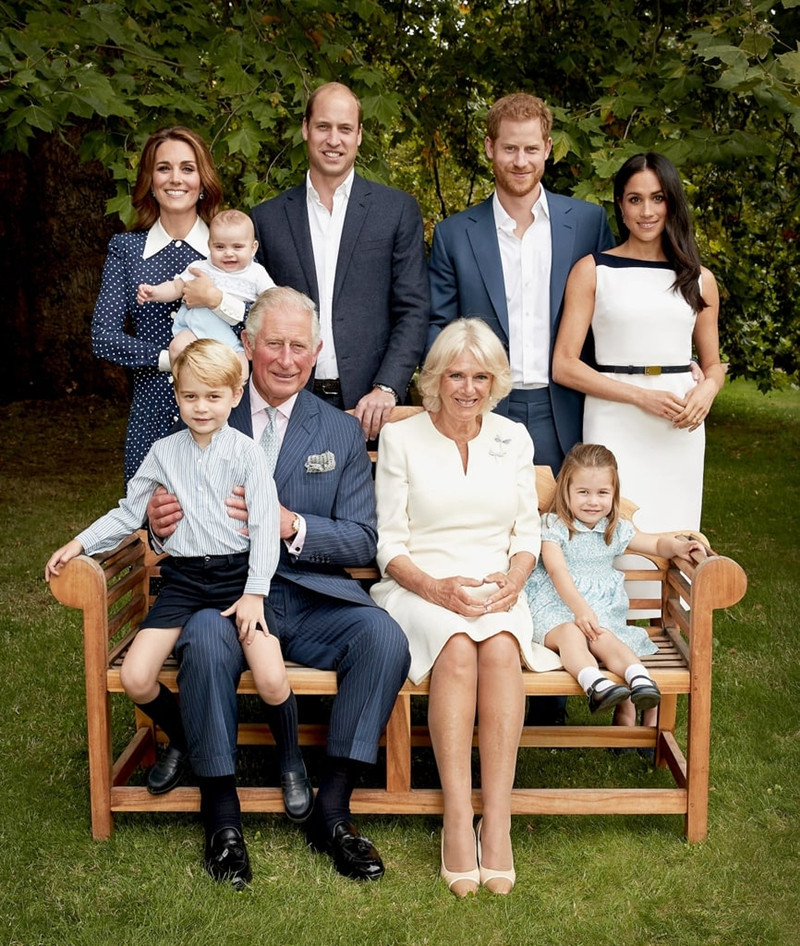The British Royal Family has long been a subject of fascination, with its blend of tradition, duty, and occasional controversy capturing global attention. In recent years, the rift between Prince Harry, the Duke of Sussex, and his family has dominated headlines, fueled by public disclosures in interviews, a Netflix docuseries, and Harry’s memoir, Spare. However, a recent development has sparked hope for reconciliation, as senior aides to King Charles III and Prince Harry were photographed meeting in London, an event described as a “significant step” toward mending their strained relationship. This article explores the context, significance, and potential implications of this meeting, anchored by a poignant quote from Prince Harry: “I would love reconciliation with my family” (NBC News, 2025).
The meeting, which took place at the Royal Over-Seas League near Clarence House, involved Meredith Maines, Prince Harry’s chief communications officer, and Tobyn Andreae, King Charles’ communications secretary. The discreet summit, held in July 2025, was a rare interaction between the two households, which have had minimal contact since Harry and Meghan Markle stepped back from their royal roles in 2020. The timing of the meeting is notable, coming weeks after Harry expressed his desire for reconciliation in a BBC interview, stating, “There’s no point in continuing to fight people.” This sentiment reflects a shift from the confrontational tone of previous years, suggesting a willingness to heal familial wounds.

The backdrop of this potential thaw is a complex history of tension. The rift became public when Harry and Meghan announced their decision to step back as senior royals, citing unbearable media pressure and a lack of support from the palace. Their subsequent revelations, particularly in their 2021 Oprah Winfrey interview, deepened the divide. Allegations that a royal family member had concerns about their son Archie’s skin tone before his birth shocked the public and strained relations further. Harry’s memoir, Spare, published in 2023, added fuel to the fire, with claims of a physical altercation with his brother, Prince William, and frustrations over security arrangements. These disclosures led senior royals to become “wary” of speaking with the Sussexes, fearing their words might be made public.
King Charles, however, has reportedly kept hope alive for rebuilding ties, particularly with his son and grandchildren, Archie and Lilibet. A royal source told the Daily Mirror that the King backed the recent “peace summit” but emphasized that public criticism of the family must cease for a “way forward” to be possible. This condition underscores the delicate balance between personal reconciliation and the monarchy’s public image, a core concern for an institution rooted in tradition and discretion.
The action of King Charles endorsing this meeting is a significant gesture. Unlike previous years, where communication was minimal, his decision to allow senior aides to engage directly with Harry’s team signals an openness to dialogue. This move aligns with Charles’ broader approach to his reign, which has emphasized unity and resilience, as seen in his emotional statement marking the 20th anniversary of the 7/7 London bombings, where he called for “unity” in the face of tragedy. The King’s willingness to facilitate this meeting suggests a desire to extend that same spirit of unity to his family.
:max_bytes(150000):strip_icc():focal(748x276:750x278)/king-charles-iii-7-7-bombings-070725-1-c9b77aa69c674675b1a20237bcfe4e1e.jpg)
Public reaction to the meeting has been mixed, with some seeing it as a hopeful sign and others skeptical due to the photo leak that brought it to light. Newsweek reported that the leak, which made front-page news, may have complicated the delicate process, as privacy has been a key issue for both sides. Harry’s legal battles, including challenges against tabloid newspapers for alleged phone hacking and his appeal against the British government’s decision to reduce his security detail, highlight his ongoing struggle for privacy and safety. These issues have been a wedge between him and his father, making the leaked photos a potential setback.
For Prince Harry, the meeting represents a chance to fulfill his expressed desire for reconciliation. His BBC interview in May 2025 revealed a man tired of conflict, seeking to mend ties not just for himself but for his children, who have had limited contact with their royal relatives. The emotional weight of his statement, “I would love reconciliation with my family,” resonates with anyone familiar with familial estrangement. It suggests a personal motivation that transcends the public spectacle, focusing on rebuilding bonds with his father and brother.
The broader implications of this meeting extend beyond the personal. A reconciled royal family could reshape public perceptions of the monarchy, which has faced challenges in recent years, including the health struggles of King Charles and the Princess of Wales, both diagnosed with cancer in 2024. The sovereign grant report noted a drop in public engagements due to these illnesses, underscoring the strain on the working royals. A united front, even partially restored, could bolster the monarchy’s image as a stable institution.

However, challenges remain. Prince William’s absence from the meeting, with no representative present, raises questions about his stance. Sources suggest he has moved to a “healthier space,” focusing on his duties and family rather than the rift with Harry. This dynamic indicates that while Charles may be open to reconciliation, William’s reservations could complicate matters. Additionally, Meghan Markle’s role in any potential rapprochement remains unclear, as she has been focused on her ventures in the U.S., including product launches and raising their children.
As the royal family navigates this delicate moment, the world watches closely. The meeting of aides is a small but meaningful step, reflecting King Charles’ commitment to family and Harry’s hope for reconciliation. Whether it leads to a lasting thaw or remains a fleeting gesture, it underscores the enduring human element within the monarchy—a family striving to heal amidst the glare of public scrutiny.